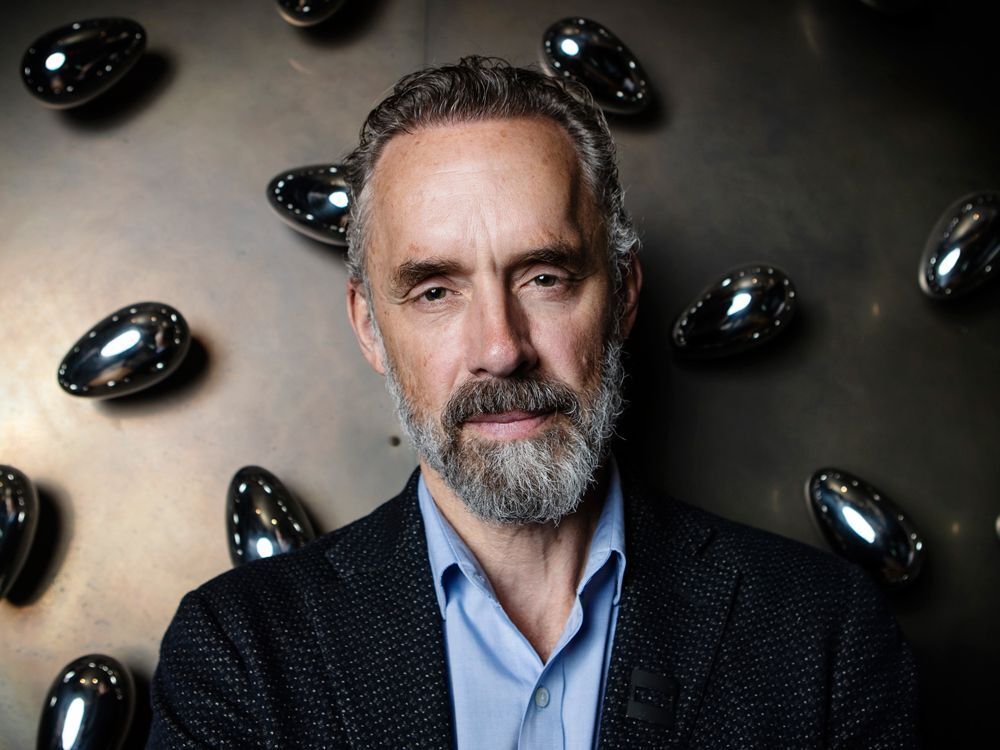 Jordan B. Peterson’s 12 Rules for Life has sold more than five million copies worldwide and has been published in over 50 languages. His YouTube videos and podcasts have gathered a worldwide audience of hundreds of millions, and his global book tour has reached more than 250,000 people in 120 different cities. Peterson earned his PhD from McGill and has worked for decades as a clinical psychologist and professor. He has become one of the world's most influential public intellectuals. He recently released Beyond Order where he offers twelve new principles to guide readers towards a more courageous, truthful, and meaningful life. Here is a series of blog posts based on 12 Rules for Life which is a primer for Beyond Order
Jordan B. Peterson’s 12 Rules for Life has sold more than five million copies worldwide and has been published in over 50 languages. His YouTube videos and podcasts have gathered a worldwide audience of hundreds of millions, and his global book tour has reached more than 250,000 people in 120 different cities. Peterson earned his PhD from McGill and has worked for decades as a clinical psychologist and professor. He has become one of the world's most influential public intellectuals. He recently released Beyond Order where he offers twelve new principles to guide readers towards a more courageous, truthful, and meaningful life. Here is a series of blog posts based on 12 Rules for Life which is a primer for Beyond Order
 Blog Series - A Primer for Jordan B. Peterson's Beyond Order:
Blog Series - A Primer for Jordan B. Peterson's Beyond Order:
- Why Every Christian Should Read This Book
- Order, Chaos & Being
- Rule 1 - 6
- Rules 8 – 12
- The Meaning of Life. Not.
The core concepts of 12 Rules For Life are “order,” “chaos” and “being.” The use of these terms is an interesting way of approaching life. Most people don’t walk around thinking about how they will balance “order” and “chaos” each day or do they ponder the nature of their “being.” So, why does Peterson use these terms?
A glimpse into Peterson’s thought comes from the book’s very useful “Foreword” written by a friend and fellow professor Norman Doidge. Why talk about rules? Doidge points out that there is a hunger among many younger people for rules or guidelines. Younger people, like the students on big secular campuses, are taught two contradictory ideas about morality [xviii]. First, they are taught that “morality is relative, at best a personal “value judgment.” Relative means that there is no absolute right or wrong in anything”; instead they are a matter of opinion arising out of one’s background or culture [xviii]. So along comes Peterson with his rules where they otherwise do not exist or have been discredited.
Doidge rightly points out that since values are deemed to be arbitrary in our present environment, the “emphasis on tolerance is so paramount that for many people one of the worst character flaws a person can have is to be “judgmental.” [xix] By way of sidebar, Christians, or anyone with a defined value system, knows this polemical dynamic all too well.
Doidge explains further, that since today people generally don’t know right from wrong, “just about the most inappropriate thing an adult can do is give a young person advice about how to live” [xix]. No one’s view—even someone with much more experience—is better than anyone else’s.
Is there no guidance from the collected wisdom of the past? That doesn’t go over so well these days. Doidge notes that the second contradictory idea about morality that is taught is that there is less value in the wisdom of the past than its ideological interpretation. The “Great Books” of Western Civilization are not just presented, but they are interpreted through the present veil of relativism. [xxi]
Doidge believes this approach is poppycock. He notes that humans have always been concerned with morality and “that we create a structure of laws and rules wherever we are.” [xxii] Yet, the current environment runs counter to that historical bent.
What is the impact of modern relativism? Doidge is not impressed, and is a kindred spirit with Peterson, concluding that, “we are hobbling ourselves by pretending to be something we are not.” [xxii] In short, it’s hard to pull off being a relativist, going away the historical flow of human thought.
Doidge’s Foreword provides a useful context for Peterson, who proposes his “rules”—which sounds very non-relativistic—about how to live. This runs in the face of no rules and no one imposing their rules or guidelines on anyone else, particularly in hallowed hallways of academia.
Peterson opens his book with a chapter called an “Overture,” like a symphony or cacophony about to lift off. Peterson sets up a dichotomy of order versus chaos. While interesting, this approach seems like an overly simplistic, black and white distinction, as there are clearly a lot more and varied nuances at play.
Peterson provides basic definitions. He explains that, “Order is where the people around you act according to well-understood social norms, and remain predictable and cooperative.” [xxviii] By contrast, “Chaos…is where—or when—something unexpected happens…It’s the new and unpredictable suddenly emerging in the midst of the commonplace familiar.” [xxviii]
Further, there is his bedrock concept of “Being” which Peterson refers to frequently throughout the book. The concept and meaning of “being” is based on the work of German philosopher Martin Heidegger. Peterson explains that Heidigger wanted to distinguish between reality, as conceived objectively, and “the totality of human experience”, subjectively, personally and individually…“it includes emotions, drives, dreams, visions and revelations, as well as our private thoughts and perceptions.” [xxxi]
Peterson argues that, “We experience much of our positive emotion in relation to goals. …the meaning of life without positive value is not simply neutral…we must have something to set against the suffering that is intrinsic to Being.” [xxxi] There must be more, according to Peterson, and he senses that there is a vacuum of meaning in the West.
Peterson notes that, “In the West we have been withdrawing from our tradition-, religion- and even nation-centred cultures, partly to decrease the danger of group conflict. But we are increasingly falling prey to the desperation of meaninglessness, and that is no improvement at all.” [xxxii] In other words, don’t look forward to the present babble, but rather back to the rich wisdom of yesteryear. Peterson provides a remedy by drawing on wisdom and religious, heavily Christian, sources, stretching back 1,000s of years.
Here we get to Peterson’s thesis in the book. Peterson proposes that, “We need to stay on the straight and narrow path. Each of the twelve rules of this book—and their accompanying essays—therefore provide a guide to being there. ‘There’ is the dividing line between order and chaos. That’s where we are simultaneously stable enough, exploring enough, transformed enough, repairing enough, and cooperating enough. It’s there we find the meaning that justifies life and its inevitable suffering.” [xxxiv] Pederson offers his path to a meaningful life with characteristic poetic prose.
Peterson’s goal: “I hope that these rules and their accompanying essays will help people understand what they already know: that the soul of the individual eternally hungers for the heroism of genuine Being, and that the willingness to take on that responsibility is identical to the decision to live a meaningful life.” [xxxiv – xxxv] Here we have Peterson’s secret to a meaningful life. He cites the wisdom literature of the ages, but in the end, advances his own.
This blog was originally posted on January 20th, 2019
